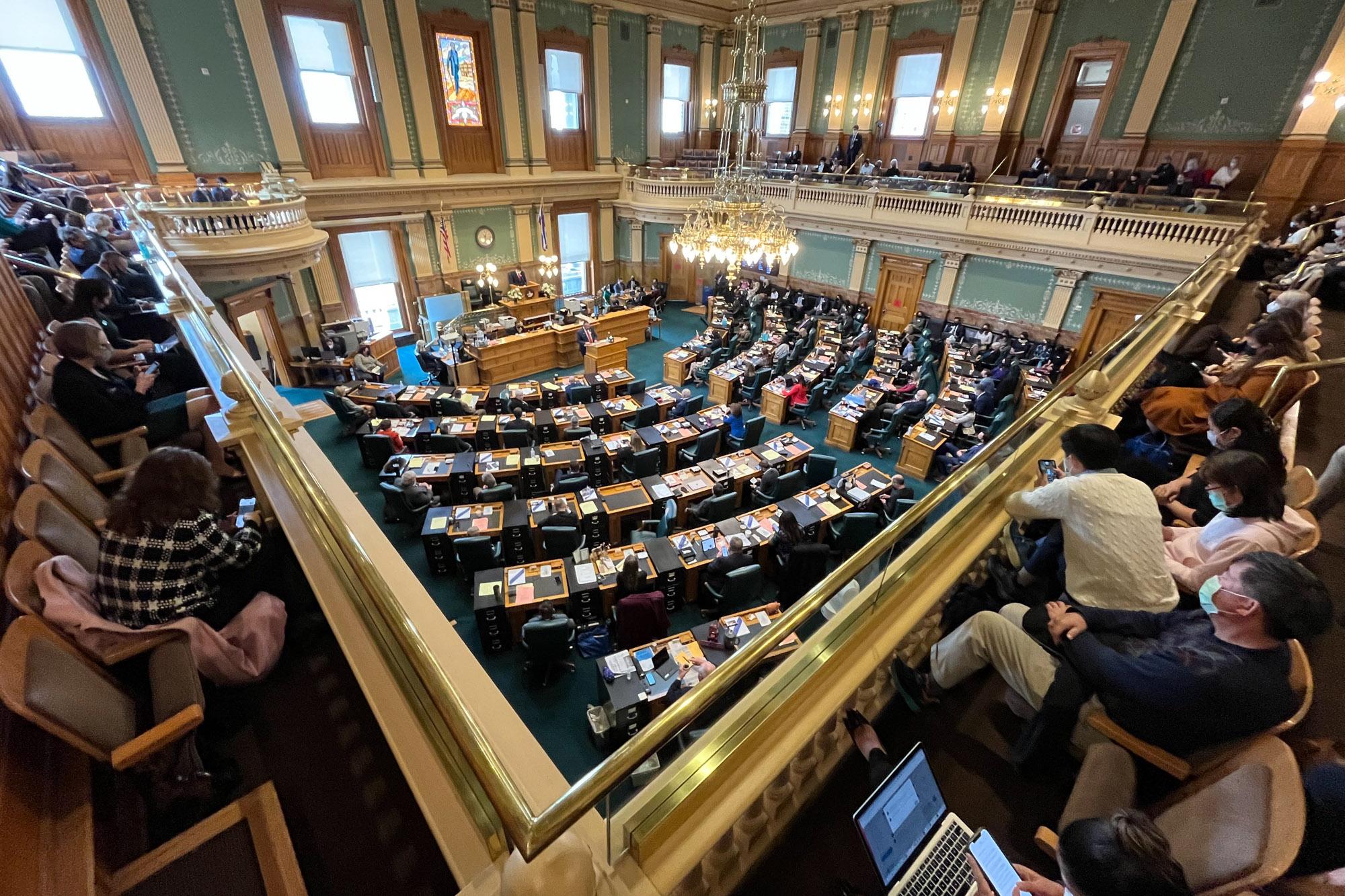
The first day of the legislative session is marked by three things: handshakes, speeches and bills. Lots of bills.
After legislative leaders took their turns staking out their positions on this session’s major themes — like the cost of living and public safety — they set in motion dozens of proposals for new laws.
Some of the biggest proposals of the session may not be introduced for weeks or months, as proponents take their time tinkering on them behind the scenes. But the first slate of bills gives an early sense of what’s on lawmakers' minds.
The list below includes bills selected by Democratic and Republican leaders to show off their priorities at the start of the session.
Republicans also have outlined dozens more bills that they plan to introduce on topics from nuclear power to income tax. But with Democrats in power, Republican proposals face a more difficult road.
Public safety
- Local governments in higher crime neighborhoods would get money to upgrade things like lighting and trash collection to try and reduce crime under a Democratic bill.
- A bipartisan proposal would start a program to diversify policing and recruit officers who better reflect the communities they serve, and also sets aside $5 million for mental health support for officers.
- A Democratic bill would create a two-year grant to fund programs that aim to reduce crime among youth.
- In response to the surge in catalytic converter thefts, state regulators would get more oversight of aftermarket sales of this lucrative auto part — and it could become easier to prosecute “chop shops” for selling stolen ones.
Education and health
- As the pandemic continues to exacerbate long term staff shortages in the health care sector, a Democratic proposal would allow community colleges to offer bachelor’s degrees in nursing.
- A bipartisan proposal would expand a program that is meant to send people with behavioral health disorders into community treatment instead of courts and jails.
- Colorado students who spent time in foster or kinship care would have their tuition and fees waived at state colleges and universities under a bipartisan proposal.
- Another bill with bipartisan backing would create a refundable income tax credit for eligible early childhood educators.
- Planned Republican proposals would change how charter schools are funded; put new money toward schools; create a “Parents’ Bill of Rights”; and require school districts to post all learning materials online before a semester begins.
Business and economy
- A Democratic proposal would increase the tax break small businesses get in return for collecting and remitting sales taxes, from 4-percent currently to 5.3-percent of their total collections.
- A Democratic bill would reduce fees for new business registrations and annual business renewals by $16 million dollars cumulatively.
- Democrats also have a bill to repeal nine rarely used tax credits, which has been an ongoing priority of the governor.
- Planned Republican proposals would reduce the income tax rate; create tax deductions for renters; broaden the sales tax exemptions for food; expanded tax breaks for seniors and veterans, among other changes.
Other things
- Lawmakers are working together to create a commission to prepare for a yearlong celebration of Colorado’s 150th birthday in 2026, which also happens to be the nation’s semiquincentennial (remember, we are the Centennial State after all).
- Users of powered wheelchairs would gain the "right to repair" their equipment under a bill requiring manufacturers to provide parts and information to owners and independent repair shops.
- Rural utilities could apply for grants to help their communities set up "micro-grids" to help them maintain electrical power after severe weather or a natural disaster, under a bipartisan proposal.
- Volunteer fire departments could also see more state funding under a bipartisan proposal.
- A group of Democratic lawmakers have introduced a bill that would outlaw the hunting of mountain lions, bobcats, and Canada lynx.
- Planned Republican proposals would have the state study small modular nuclear power stations; attempt to encourage the development of geothermal energy; and more.









